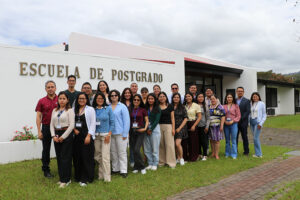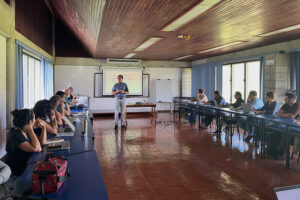Rural women raise their voices for gender equality in local development
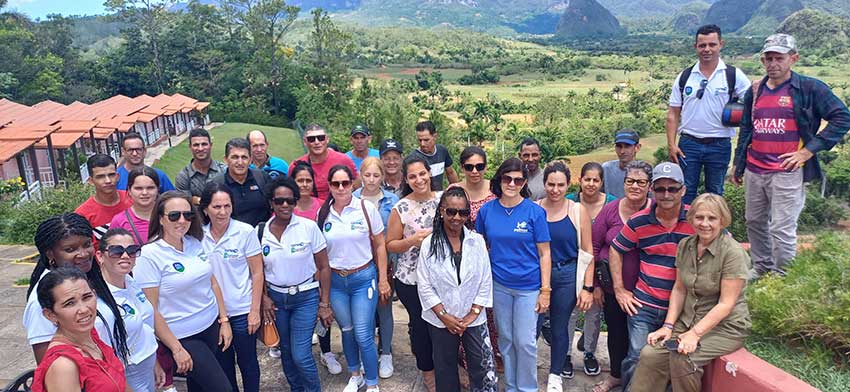
- First workshop of the CIENPINOS project highlights the role of women producers in the criollo bellotero pig value chain in Pinar del Río
With the aim of recognizing the leading role of women in the sustainable development of rural areas, the project Municipal climate governance and sustainable agroforestry food production with low emissions and climate change adaptation in Cienfuegos and Pinar del Río, Cuba, known as CIENPINOS, held its first workshop on gender equality from May 13 to 15 in the municipality of Viñales.
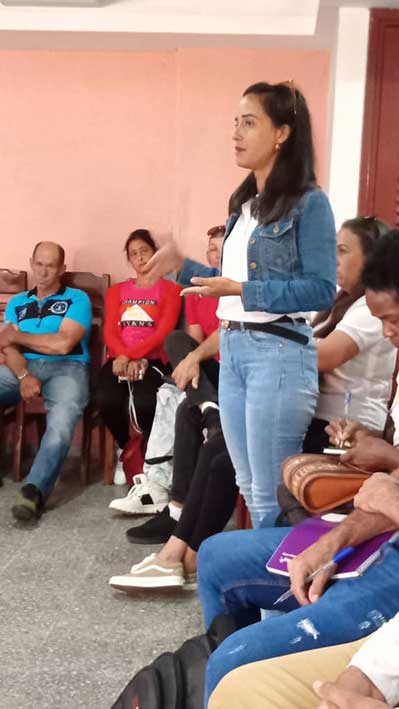
More than 50 people participated in the event, including 28 women producers of criollo bellotero pigs from Viñales and La Palma, who, for the first time, were able to share their experiences, challenges, and aspirations within a value chain historically dominated by men.
Over two days, the participants reflected on the gender gaps that persist in their communities, using dialogue spaces and cultural expressions such as décima campesina, a distinctive element of local identity. The activity made visible the multiple barriers women face both at home and in their communities, while also opening a space for exchanging ideas among the women and their families.
The workshop featured well-known specialists in gender and social inclusion, who facilitated participatory dynamics to explore topics such as empowerment, labor inclusion, and equity in access to opportunities. Anaisa Crespo Morales, professor at the Municipal University Center (CUM) of La Palma, emphasized that "gender is a sociocultural construct that can be transformed, and CIENPINOS has tools to drive that transformation."
For her part, María Isabel López Pretel, head of the Women’s Studies Department at the University of Pinar del Río, delved into the issue of the sexual division of labor: "The roles imposed by the patriarchal society are not unchangeable. Emerging perspectives allow us to envision more dynamic, equitable, and contemporary gender roles."
Data presented by the mayor of Viñales, Raúl Alberto Morales Carrillo, underscored the urgency for change: although 49% of the municipality’s population are women, only one of the 24 local production structures is headed by a woman. A similar situation is found in the municipality of La Palma.
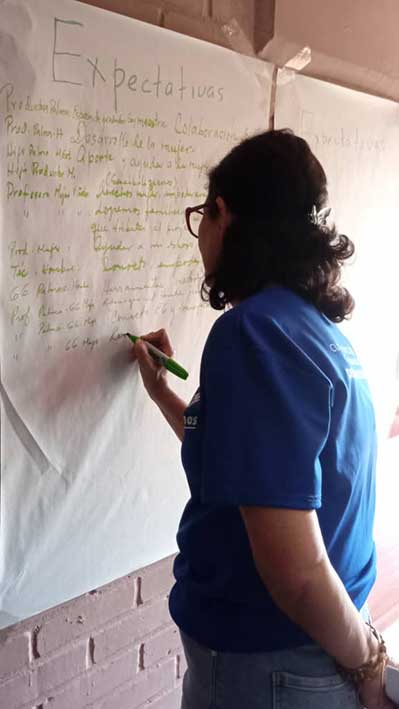
On the second day, the focus shifted to identifying limitations, opportunities, and strategies to combat gender-based violence and promote family unity as a foundation for sustainable development. Dramatized scenes performed by workshop attendees depicted daily life in rural communities, highlighting the resistance to change, but also the transformative potential through the joint commitment of men and women.
Among the conclusions, participants proposed strengthening work with families involved in the CIENPINOS project, promoting more effective communication strategies, and coordinating local-level efforts to foster a culture of equality. "We still need to improve communication so that each person understands the importance of change; that remains one of the greatest challenges," emphasized López Pretel.
The event concluded with concrete proposals aimed at gradually transforming the current reality, through their incorporation into Municipal Development Strategies (MDS) and in synergy with other initiatives, such as the National Program for the Advancement of Women in Cuba. In doing so, CIENPINOS reaffirms its commitment to gender equality as a cornerstone for human and sustainable development in rural areas.
More information:
Ismael Hernández Venereo
International coordinator
CIENPINOS Project
CATIE
ismael.hernandez@catie.ac.cr
Written by:
Raúl Isidrón Pichs
Journalist and Communicator
CIENPINOS Project
raul.isidron@73gmail.com

